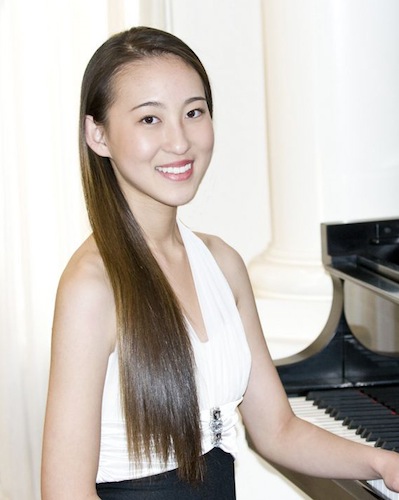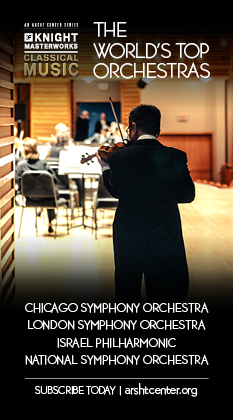Gifted pianist sparks varied program from Miami Summer Music Festival

Isabella Ma performed Grieg’s Piano Concerto with conductor Michael Rossi and the MSMF orchestra Saturday night at New World Center.
It was a good night for the Miami Summer Music Festival and its student participants Saturday in Miami Beach, playing to a near-capacity house at New World Center. The orchestra and soloists, comprised of undergraduate and graduate students from music conservatories, navigated a highly varied program at a skill level that always ranged above competent and, for the most part, could have passed for professional.
The concert consisted of zarzuelas, opera scenes, a piano concerto, a warhorse orchestral piece and even a brand-new work, lasting nearly three hours. Judging by the scene in the lobby afterwards, the audience was comprised in large part of families and friends of the performers. But the overall performance of the orchestra and two particularly notable solo turns made for a rewarding evening, and these festival events are clearly worth attending even for those who don’t have a personal attachment to the players.
It was hard to believe that Isabella Ma, the winner of the festival’s piano concerto competition, is only 18 years old. Ma, who recently completed her first year at the Mannes New School of Music in New York City, served up a notably fresh performance of Grieg’s Piano Concerto in A Minor.
Ma displayed a maturity and musical intelligence that emphasized the lyric beauty and austere intensity of one of the most-familiar pieces in the repertoire. From the famous opening flourish, Ma’s elegant phrasing paid careful attention to every note yet always in an organic, graceful style that never felt dry or mechanical. Throughout the performance, she made the music come alive in a spontaneous, idiomatic fashion.
Allison Lonstein, another Mannes product and the winner of an Encouragement Award at the 2015 Metropolitan Opera Auditions, brought a ringing, seamless soprano in the excerpted scene, “Donde lieta usci” from Puccini’s La Boheme. Lonstein impressed with her precise diction and embodiment of the despondent but loving Mimi. Andres Penalver, whose tenor sounded tinny in a pair of zarzuela selections earlier in the evening, felt like a musical mismatch for Lonstein until his voice blossomed in the final notes. Soprano Jordan Stadvec portrayed Musetta with appropriate sassiness.
Corey Rubin’s One Hit Song, the winner of the MSMF student composition competition, was the program’s single detour from well-trodden repertoire. His compelling ten-minute work opens with a gothic lullaby for high strings, transitioning to a jazzy clarinet solo and weaving in strains of American, Jewish and Slavic folk music that develop then deconstruct. One Hit Song lacks cohesiveness but is the work of a composer who might have something to say. Derivative it’s not.
The strongest parts of One Hit Song were in Rubin’s writing for the individual sections of the orchestra, but considering that the individual solos were far superior to the ensemble playing all night, that might have been less due to the piece itself than the conducting by MSMF artistic director Michael Rossi.
New World Center has a reverberant acoustic that can be tamed, but Rossi failed to harness his forces with the result of muddy, over-boisterous climaxes. This was especially troublesome in the two sets of opera selections, in which the weaker student voices failed to project over the orchestra. Nathan Blair, the festival’s student conducting competition winner, was much more successful in controlling the acoustic in the one piece he conducted, an aria from Rossini’s Barber of Seville.
The room was less relevant in Stravinsky’s celebrated Rite of Spring, a surging, multi-rhythmic ballet in which volume can easily be mistaken for excitement. Here, the musicality of the individual sections was apparent, from the clarity of the flutes in “The Adoration of the Earth” to the shimmering, ominous violas in the opening moments of “The Sacrifice” and the ringing brass. Entrances were, for the most part, clean, and Rossi maintained the surge and high energy of the piece in a spirited reading.
Posted in Performances
Leave a Comment
Sun Jul 26, 2015
at 2:21 pm
No Comments



